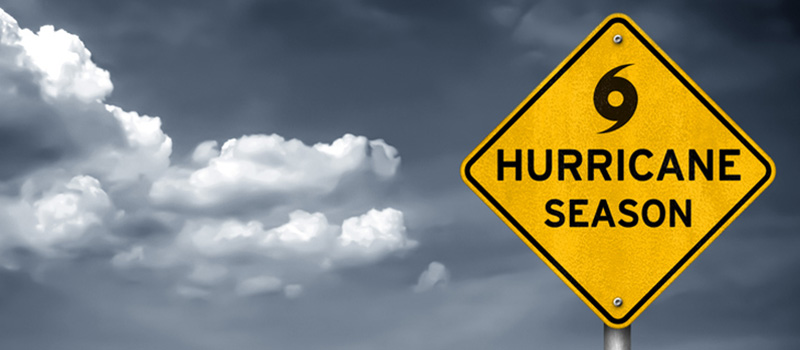Start Prepping for the Unexpected with these Reminders
Start Prepping for the Unexpected with these Reminders

Start Prepping for the Unexpected with these Reminders
Every year, hurricanes cause enormous amounts of wreckage and expense around the world. In 2021, Hurricane Ida generated a reported $75 billion in damage within the United States, becoming the costliest disaster of the year for our country. Unfortunately, emergencies can become catastrophic if people aren't ready. Preparing for a hurricane can help your family weather the storm.
How to prepare for hurricane season
June through November is considered hurricane season for areas bordering the Atlantic, according to the National Hurricane Center. As you approach hurricane season, it's important to stay prepared in case a storm starts to take shape.
Make an emergency plan
Start with a strategy for where you will go, how you will travel, and what items you might want on hand. Your emergency plan should include lists of what to pack, how to secure the house, what your pets need, and emergency contact numbers. Know where the nearest shelters are, choosing a pet-friendly shelter if you have pets. If possible, contact an out-of-town friend or family member who would let you stay during a severe storm.
Prep your family and pets
Make sure your family is on the same page and is clear on the emergency plan. Run through scenarios that could occur, such as deciding where you will go if you can't contact one of the members. Gather the information you need in your emergency kit for family members and pets, including prescriptions and vaccination records.
Gather disaster prep supplies
You should have food, fuel, water and tools on hand to help you in case of an emergency. Gather a kit that has important items your family would need in a pinch, such as:
- Nonperishable food (swapped out regularly to keep fresh)
- Water (at least 3 gallons per family member or pet)
- Medications
- Ice for refrigerated medications
- First aid kit and sanitation items, such as bleach
- Flashlight, radio and spare batteries
- Extra pet food
- Clear and updated pictures of your pets and family members
- Important documents and phone numbers
Secure your home for storms
If bad weather hits, you want to protect your home as much as possible. Bring your vehicles into the garage and keep an emergency kit in your car in case you have to leave quickly. Clear your yard of anything that could blow away, such as lawn furniture, grills, trampolines, bikes or toys. If you don't have storm shutters, nail pieces of plywood to the outside of the windows to protect them from flying objects. Turn your main house power off if you have to leave or if you see downed power lines.
Create a log of your belongings
It's a great idea to have a very clear inventory of what you own. If damage occurs, it's easier to replace what you lost when you can show what it was. Create a video of your home and belongings to help quickly catalog what was in your home and the condition of your home before each storm. Create an in-depth log with serial numbers and receipts for your more valuable items.
Following these best practices for storm preparation can help your family be ready for emergencies of all kinds - especially hurricanes.
Content on this page is designed for general information and/or entertainment purposes. It is not intended to provide legal or any other type of advice and is not meant to be a thorough discussion of every issue that a person should consider or may encounter. Unless expressly referenced, we are not affiliated with any company or app that may be referenced herein and we do not endorse them. We are not responsible or liable for the user's reliance on this content or for the availability of links to other websites or resources, or for advertising, products, services or other materials on or available through these websites or resources. Any reference to third party rates or products is for identification only and is subject to change without notice.
